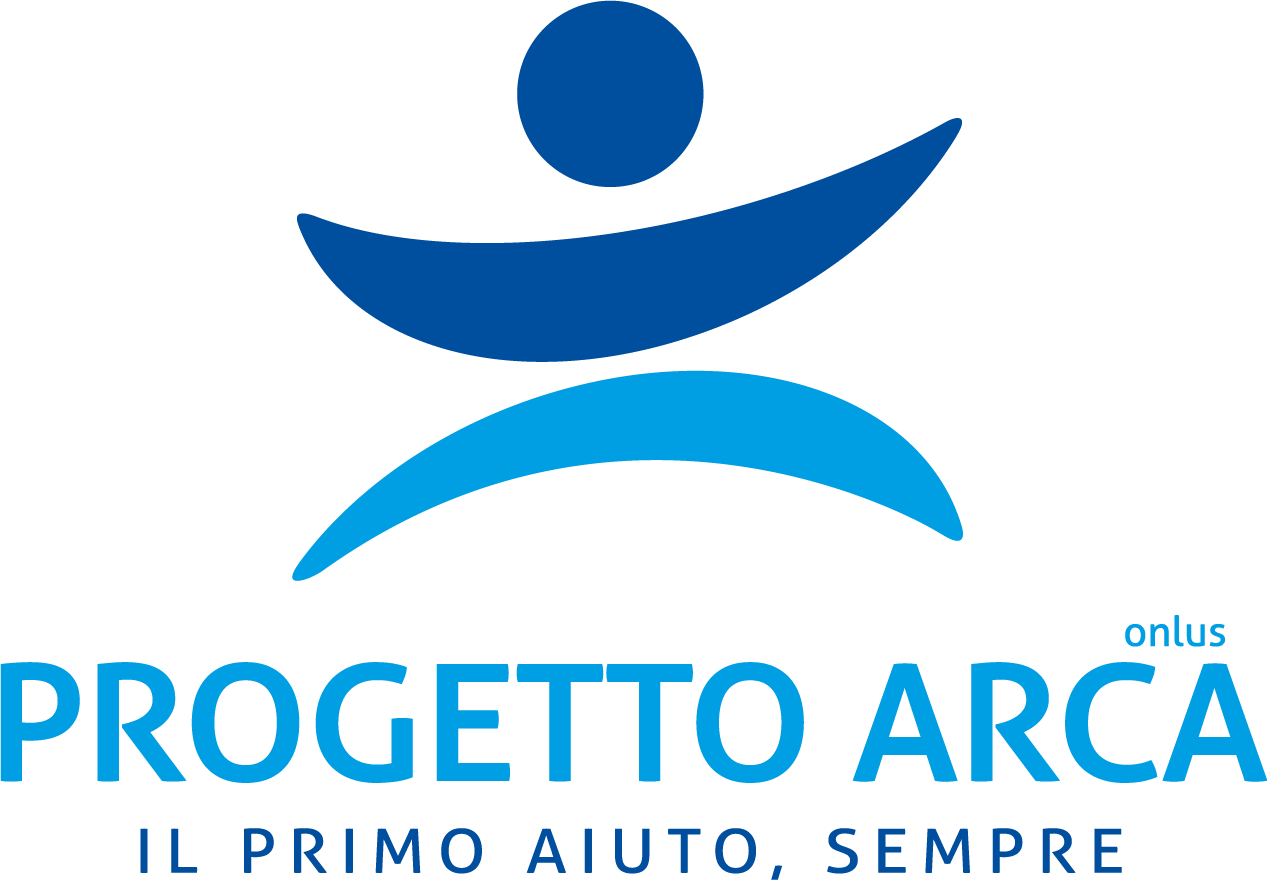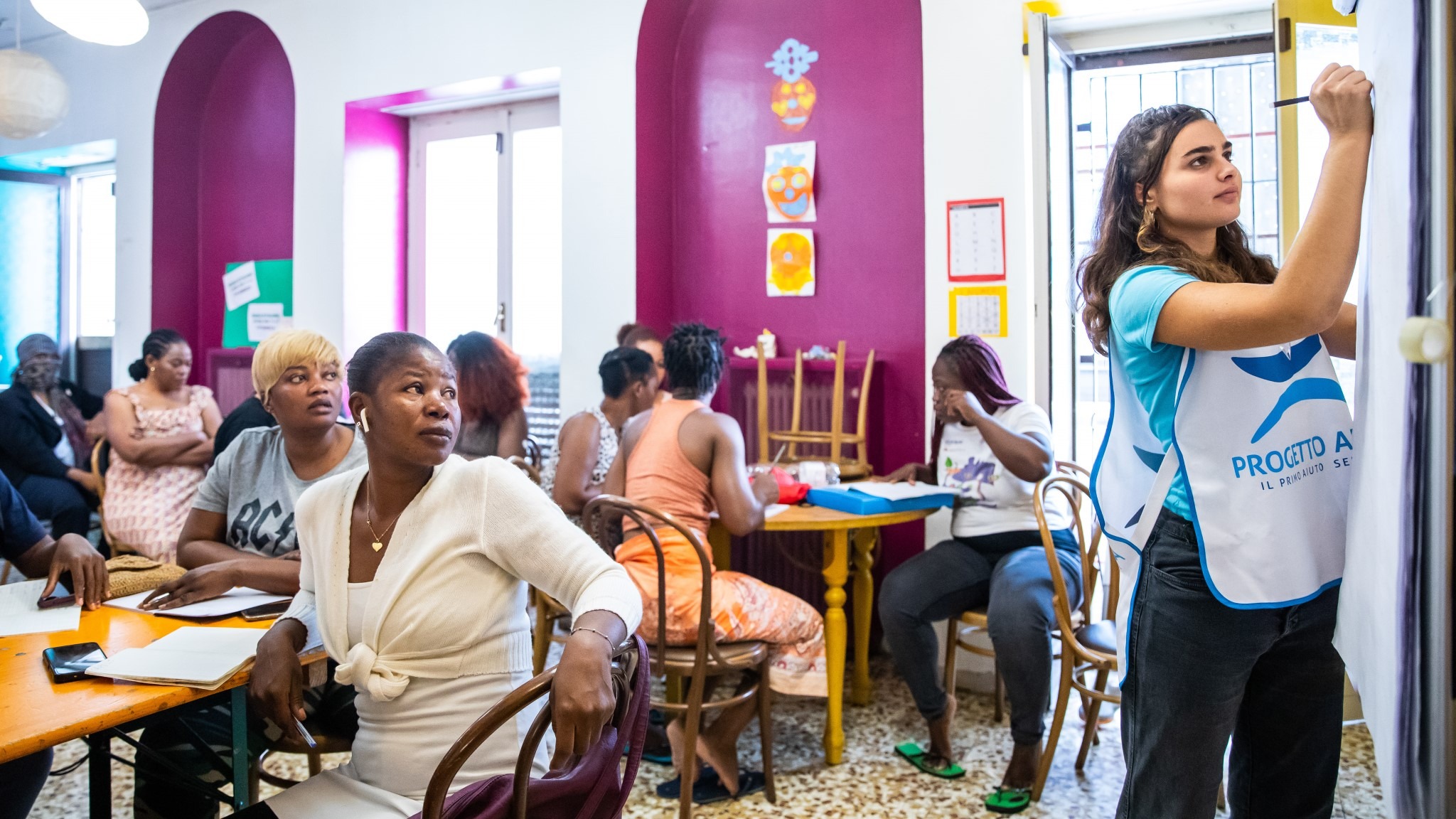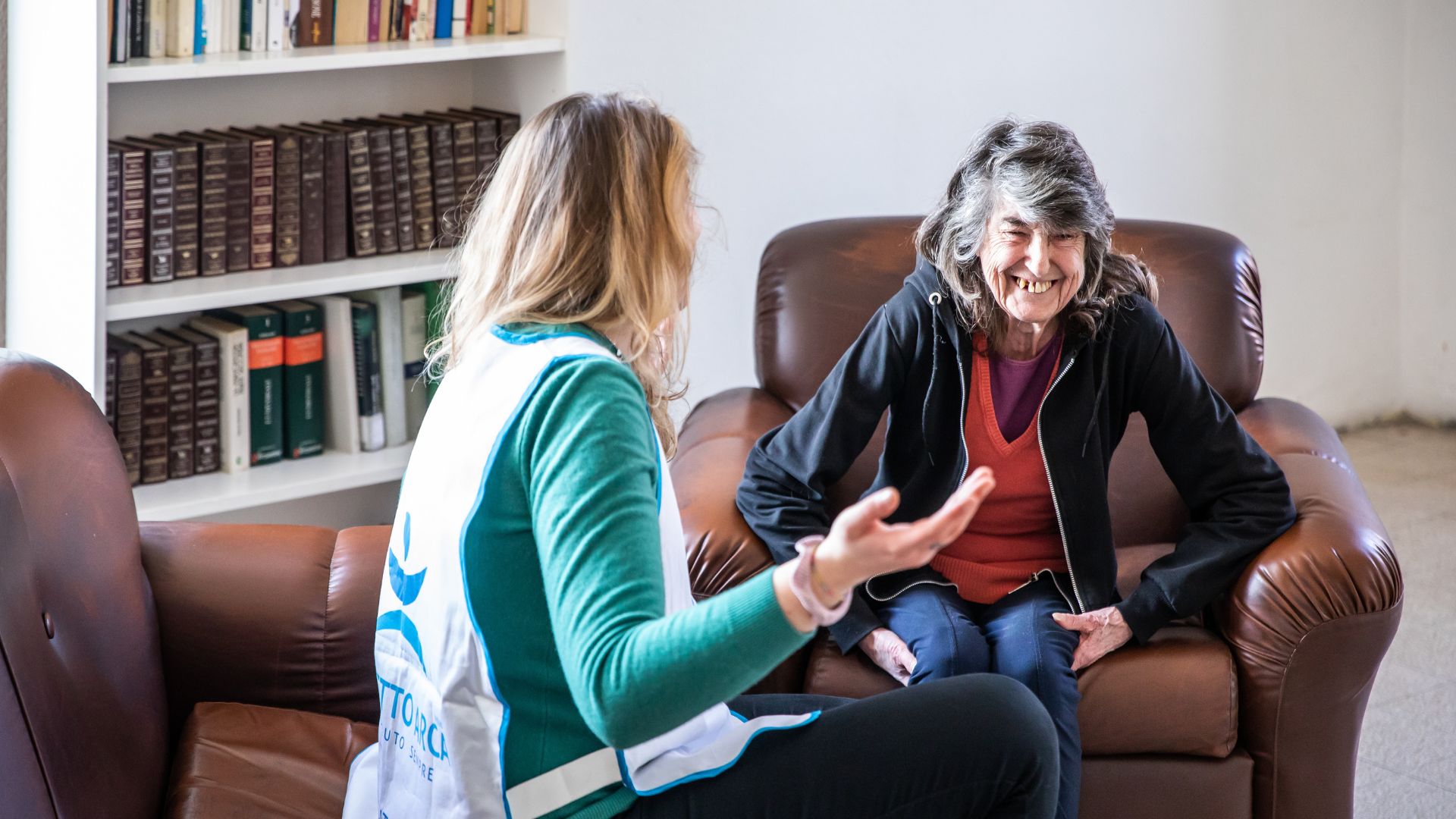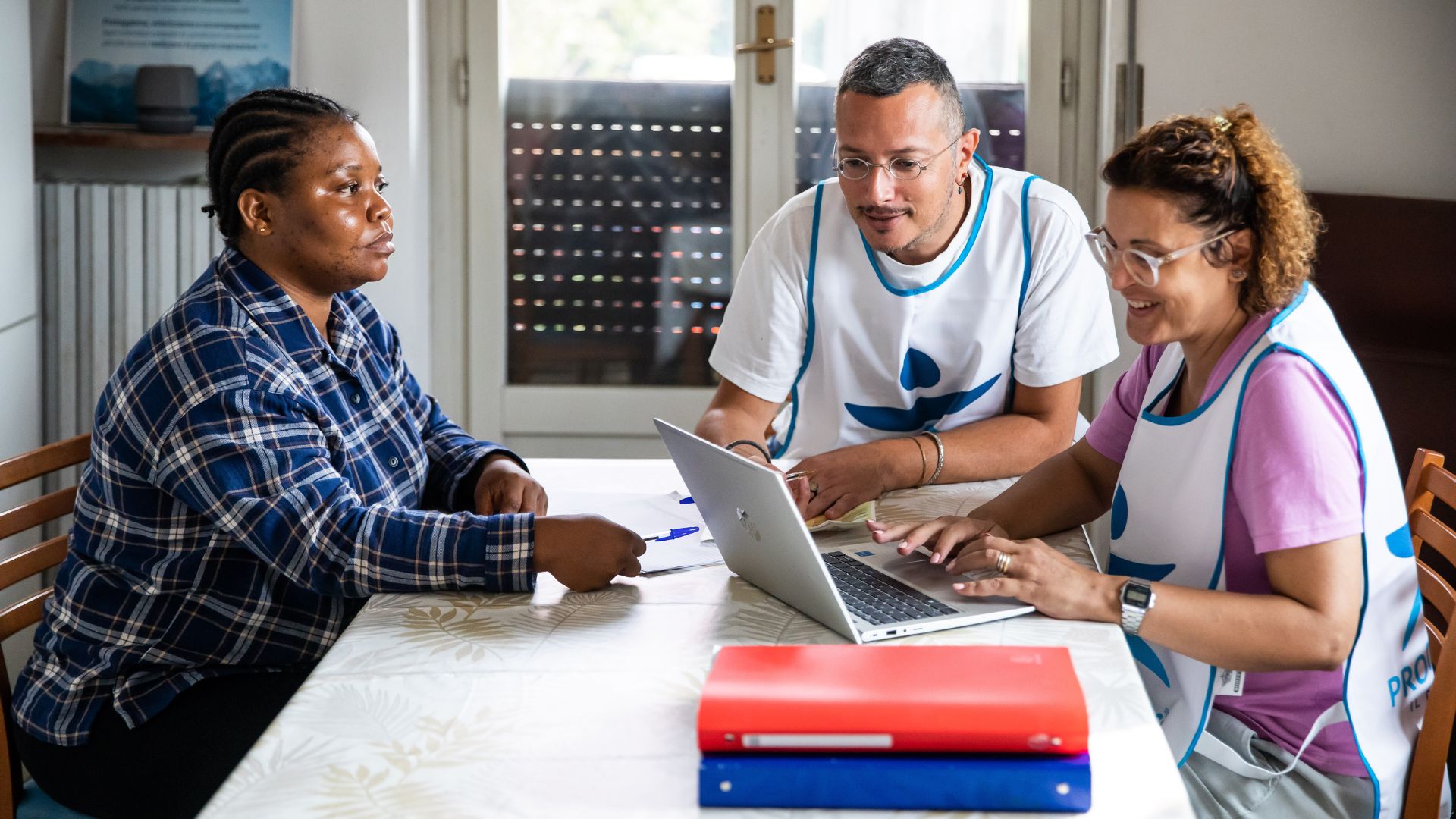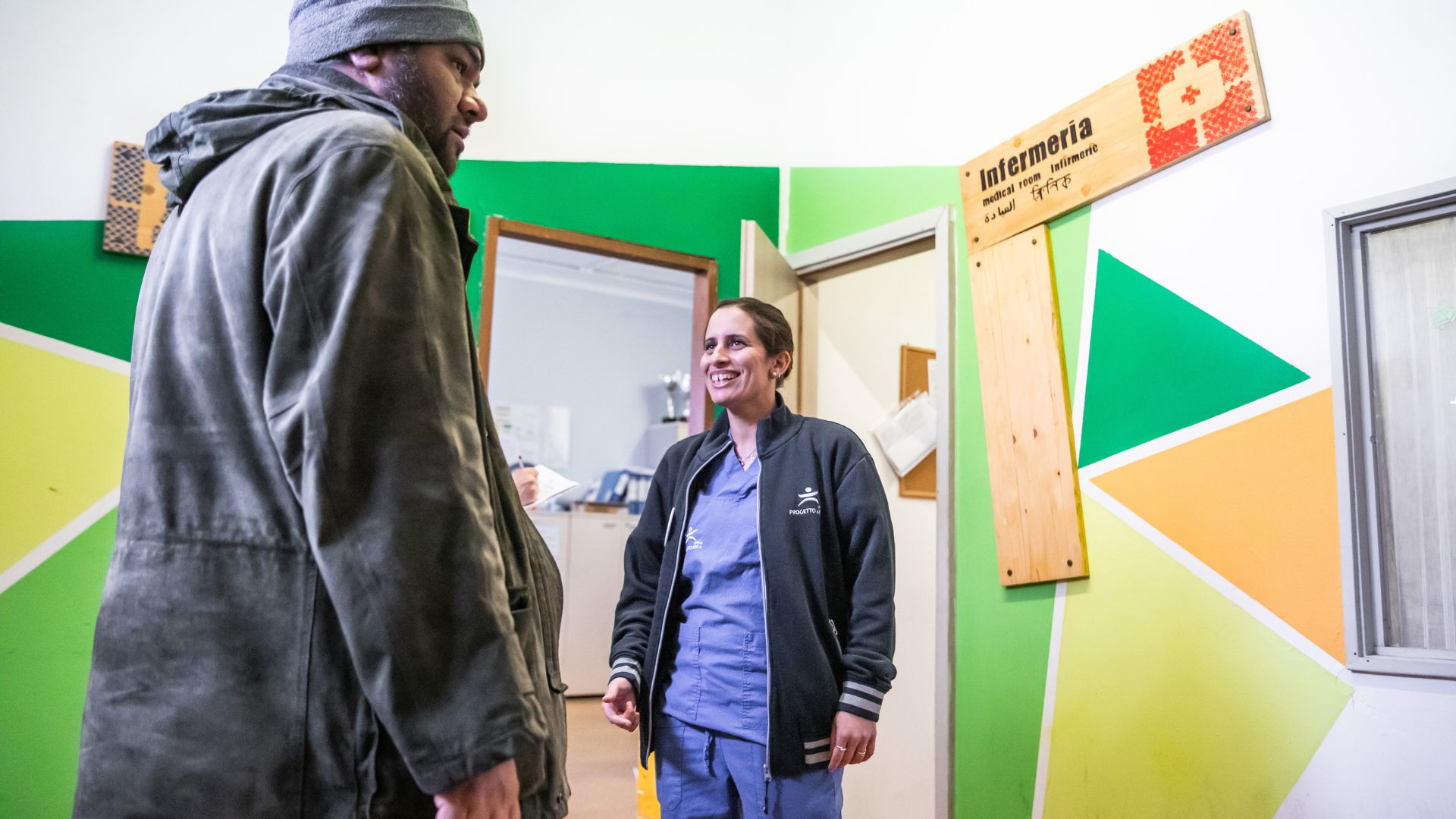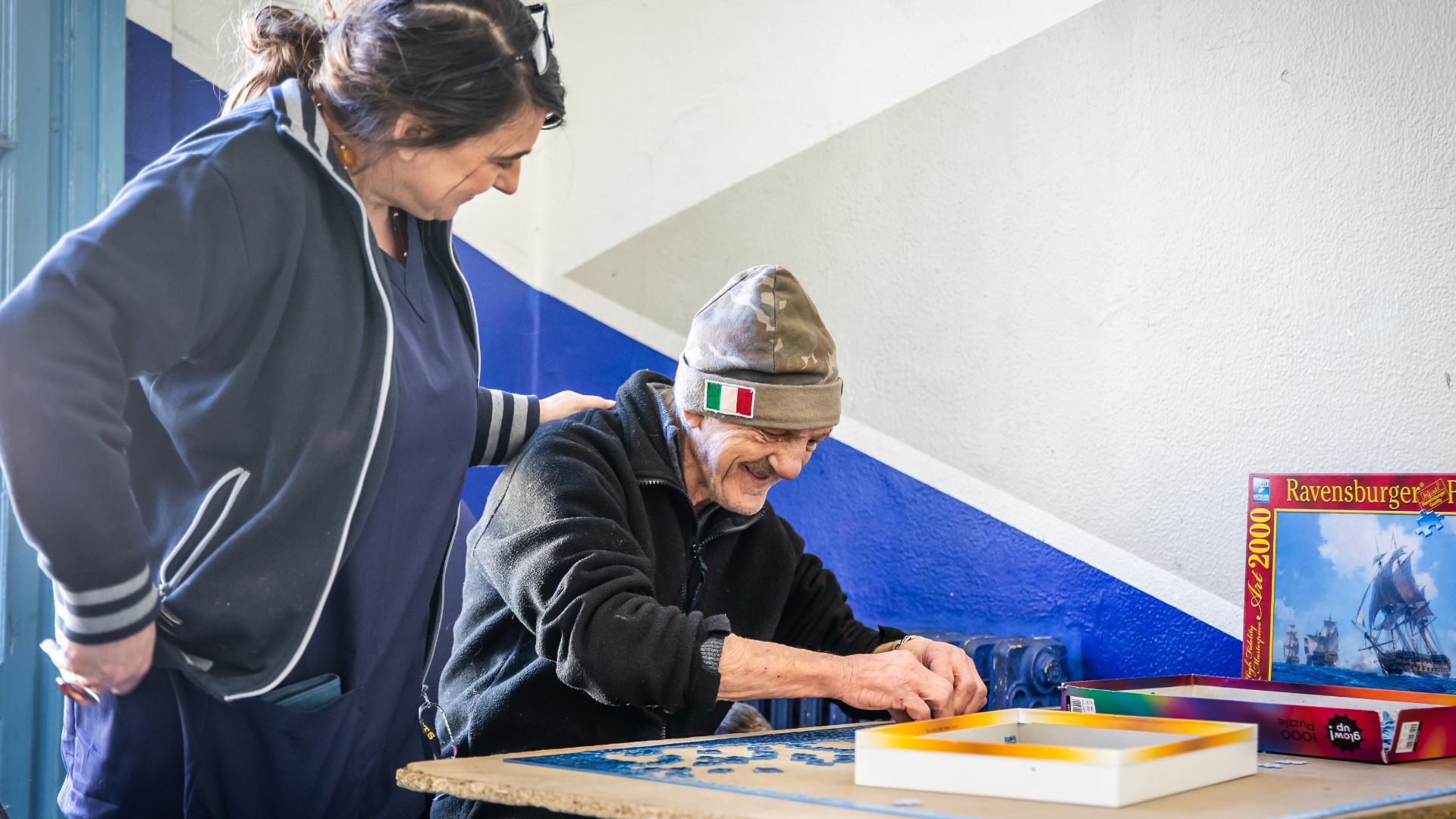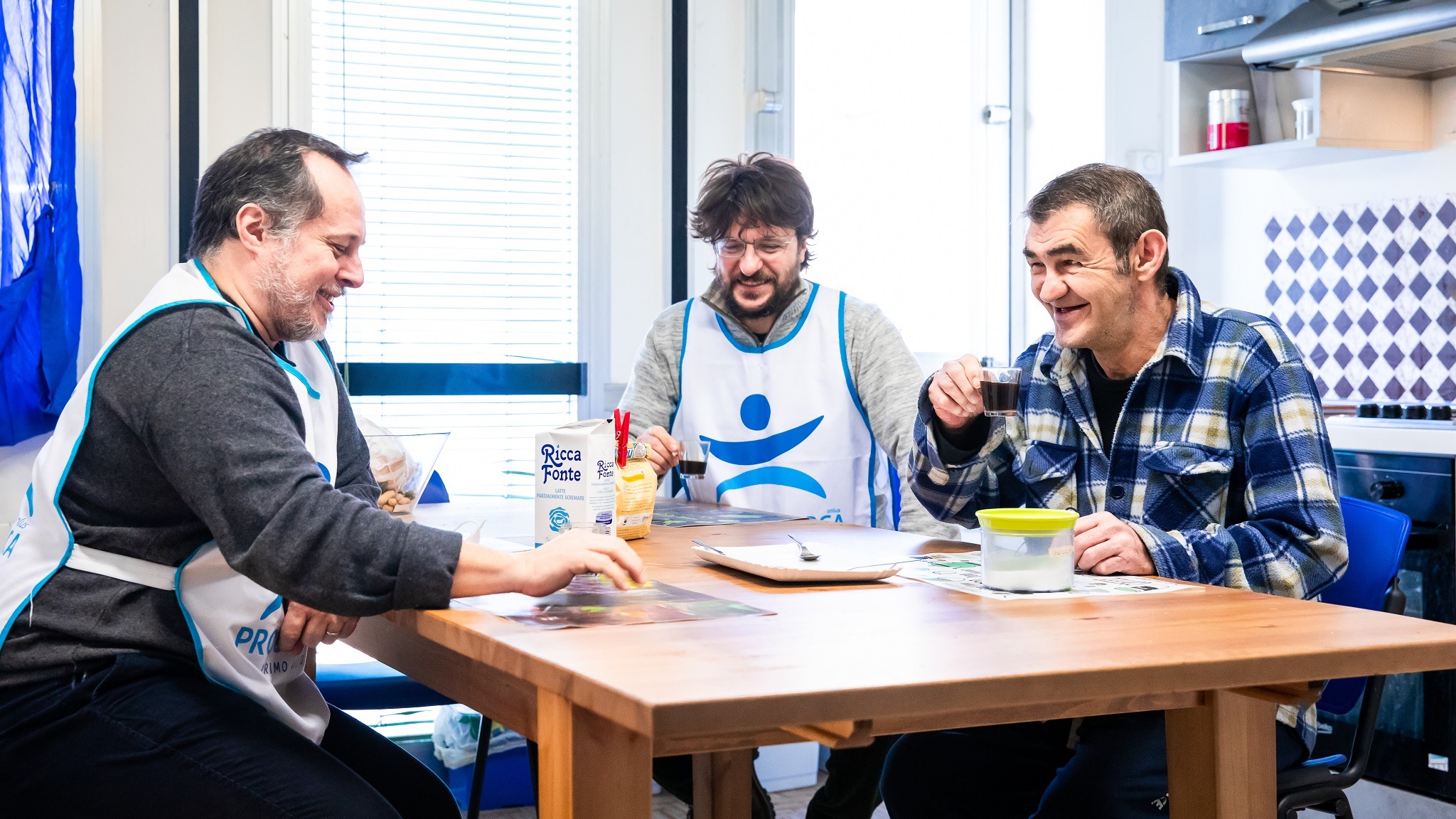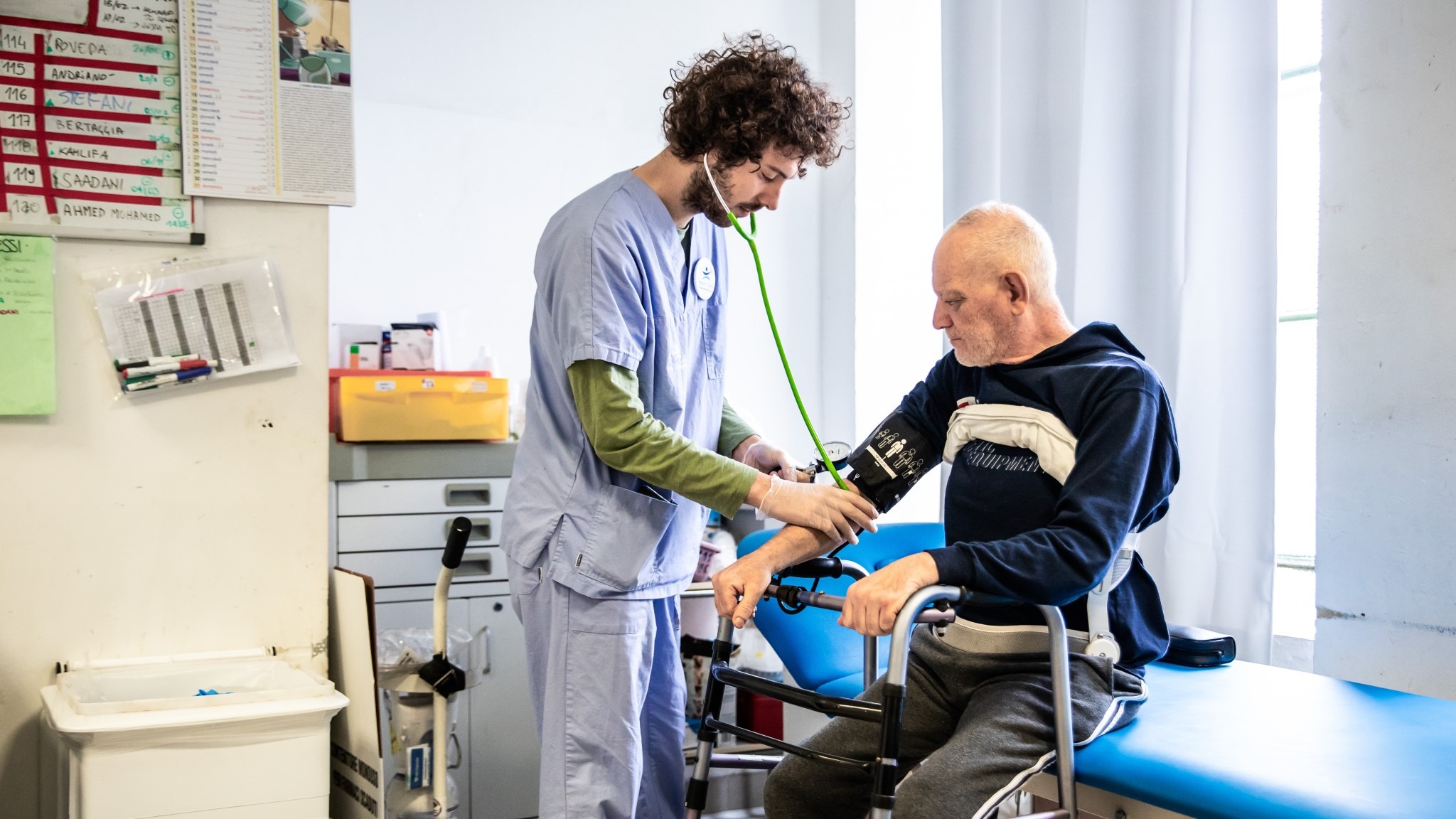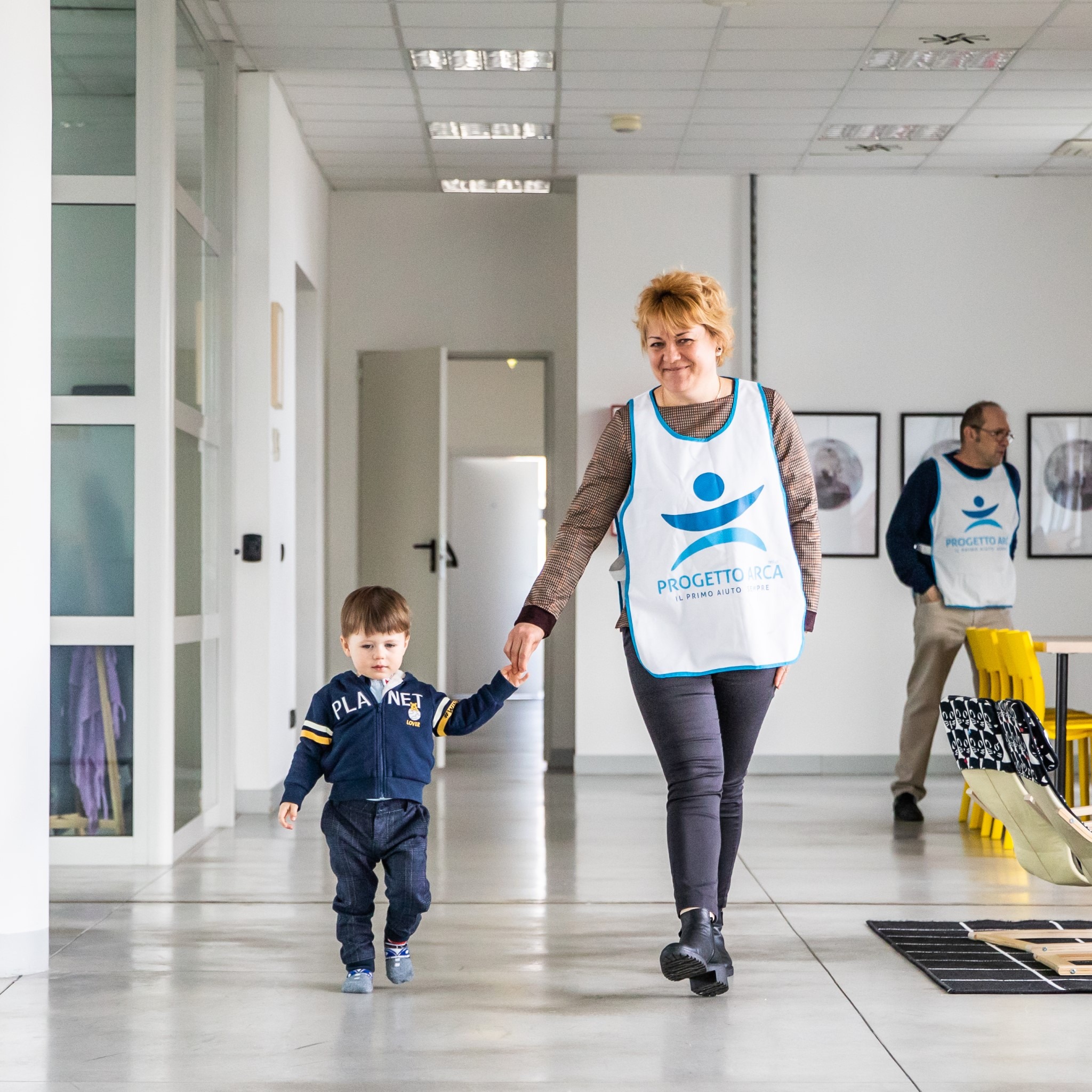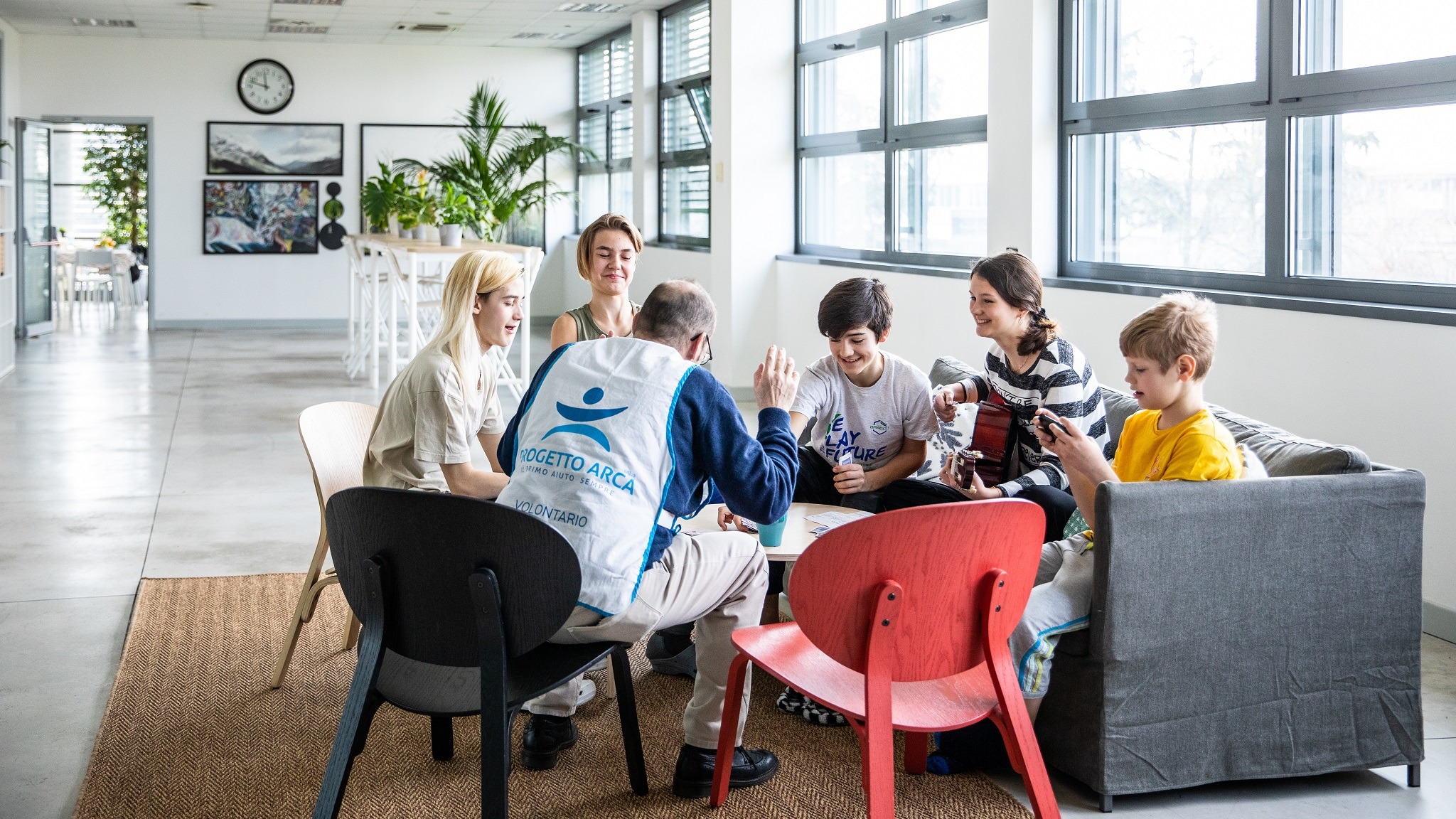
Feeling welcome. Life restarts from here.
A clean bed, a hot shower, a change of clothes, and the certainty of a meal. But also legal assistance, psychological support, social and healthcare services, and job integration.
These are fundamental human rights that life on the streets takes away from you.
Life starts anew from here.
In the last year:
12
reception facilities
284K
days of reception
2216
people hosted
Progetto Arca’s approach to reception
In addition to social housing apartments, Progetto Arca manages large-scale facilities open year-round, day and night. We welcome some of the most vulnerable people: the homeless, often suffering from physical and mental health issues after years of living on the streets, and, in the Centri di Accoglienza Straordinaria (CAS), war refugees, asylum seekers, and unaccompanied minors fleeing violence, persecution, and extreme poverty.
In our shelters, we offer refuge and protection, basic assistance, and response to essential human needs. But above all, we give our guests the opportunity to rebuild themselves, both as individuals and as citizens.
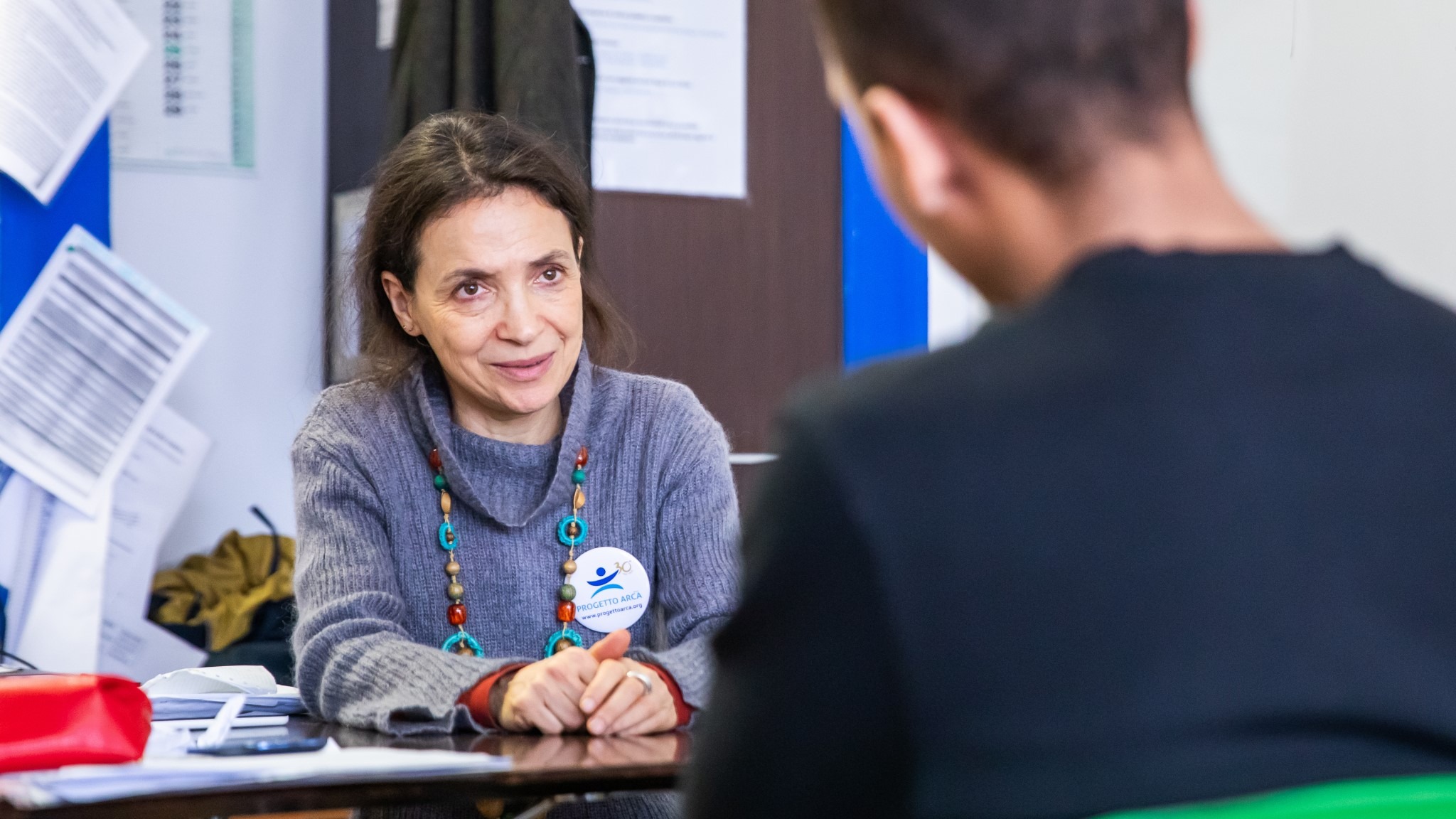
Multidisciplinary Teams and Pathways to Independence
With our multidisciplinary teams of professionals, and in collaboration with local public services, we create for each guest a social and educational project. The first goal is the recovery of their physical and mental well-being, and the ultimate objective is to help them achieve the greatest possible independence.
We support
the individual’s access to social and healthcare services, accompanying them to appointments or specialist visits, and to public offices.
We assist
our guests with the bureaucratic and administrative processes needed to regularize documents, obtain enrolment in the National Health Service, and in all phases of the procedure for international protection recognition, through free legal consultations.
We guarantee
Psychological support and healthcare assistance through internal clinics at our facilities.
We promote
Activities that favour the inclusion in the community: from Italian language courses to school enrolment for minors, from professional training to activating job placements and internships.
A Special Focus is on Women and Children
Women and children are the most vulnerable groups in emergencies and conflicts. Thanks to the involvement of cultural mediators and psychologists, in our Centre of Extraordinary Hosting in Milan, we offer special programs for women and single mothers awaiting international protection, including:
• prevention activities such as screening and vaccination awareness
• sexual education programs
• courses on conscious motherhood and parental support
The aim is to spread the value of prevention and protection, support our guests in safeguarding their health and that of their children, promote knowledge of local services, and facilitate autonomous access to these services.
